15 – 16 June 2023
Get in touch on cdf.upp@iihs.ac.in or 9611911169

Get in touch on cdf.upp@iihs.ac.in or 9611911169
The IIHS Urban Practitioners’ Programme has been driving urban transformation in India through diverse capacity development projects and programmes at the state and national levels across a range of sectors, working with various national and state institutions and development agencies, and partnering with other capacity development and consulting and training institutions and experts.
Through the Capacity Development Forum (CDF), IIHS aims to bring together the diverse stakeholders involved in the capacity development arena into a strong and value-added network to consolidate learnings across the country and from around the world. The longer term objective of the forum is to collaborate not only for making our Capacity Development practices better, but also to build and manage knowledge through research papers and action research projects, and create a repository of knowledge on Capacity Development.
The theme of CDF 2023 was ‘Enabling Environment for Capacity Development’. It had four panels and an international dialogue on day 1, followed by two round table discussions and a workshop on day 2. The panels were convened around various approaches and trends in reimagining mandates, structures and institutional arrangements shaping development initiatives. They brought together important stakeholders working at the intersection of various scales and sectors of capacity development to discuss how an enabling ecosystem and policy environment can address critical challenges of the government’s capacity to deliver services to the public effectively.
The IIHS Library hosted a mini-exhibition on Capacity Development and the strengthening of public institutions.
DAY 1 – Thursday, 15 June, 2023 |
|
| 10:00 am – 10:15 am | Welcome Address |
| 10:15 am – 10:40 am | Keynote address: Enabling Environments |
| 10:40 am – 11:40 am
|
Panel 1 – Perspectives from National-level organisations / ministries: Policymaking for Large-scale CD interventions |
| 11:40 am – 12:00 pm | TEA BREAK |
| 12:00 pm – 01:00 pm
|
Panel 2 – Emerging role of the Private Sector in capacity development |
| 01:00 pm – 02:00 pm | LUNCH BREAK |
| 02:00 pm – 03:30 pm
|
Panel 3 – Models and approaches for institutionalising Capacity Development through projects at the State-level |
| 03:45 pm – 04:45 pm
|
Panel 4 – Perspectives from CD Practitioners and researchers on emerging opportunities and challenges |
| 04:45 pm – 05:30 pm | HIGH TEA |
| 06:30 pm – 07:30 pm
|
International Dialogue: Role of Capacity Development in strengthening Public Institutions in India |
| 07:30 pm – 07:45 pm | Closing Remarks |
| 07:45 pm – 09:30 pm | NETWORKING DINNER |
DAY 2 – Friday, 16 June, 2023 |
|
| 10:00 am – 11:30 am | Round Table 1 – State-level Training Institutions (STI) on enabling environment |
| 11:30 am – 11:45 am | TEA BREAK |
| 11:45 am – 01:00 pm | Round Table 2 – Community of Practice: Capacity Development Practitioners on enabling environment |
| 01:00 pm – 02:00 pm | LUNCH BREAK |
| 02:00 pm – 04:00 pm | Workshop – Framing Teaching Cases |
Keynote Address
In his keynote address, Dr. R Balasubramaniam, Member (HR), Capacity Building Commission (CBC) set the context for the deliberations of CDF 2023 by laying out the capacity development framework of Mission Karmayogi, which is aimed at creating a future-ready civil service for India.
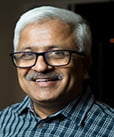 Dr. R. Balasubramaniam
Dr. R. Balasubramaniam
Member (HR)
Capacity Building Commission
Dr. R. Balasubramaniam is a physician, holds an MPhil in Hospital Administration and Health Systems Management from BITS, Pilani and a Master’s in Public Administration from the Harvard Kennedy School, Harvard University.
He is the founder of the Swami Vivekananda Youth Movement (SVYM), a development NGO and GRAAM, a public policy think tank in India. He is Member-HR in the Capacity Building Commission under the Government of India’s flagship initiative – Mission Karmayogi.
He is a Tata Scholar, a Mason Fellow of the Harvard Kennedy School and a Fellow at the Hauser Center for Civil Society, Harvard University. He is a visiting Professor at IIT Delhi and Cornell University, where he delivers lectures on Leadership and Human Development. He is also Chairman of SEBI Social Stock Exchange Advisory Board.
Panel 1 – Perspectives from National-level organisations / ministries: Policymaking for large-scale CD interventions
This panel was aimed at drawing out capacity development insights from national level organisations based on their experience in implementing large-scale mission-driven projects.
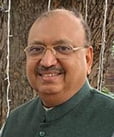 Anthony de Sa, IAS (Retd)
Anthony de Sa, IAS (Retd)
Chairman
MP Real Estate Regulatory Authority (RERA);
Former Chief Secretary of Madhya Pradesh
Anthony de Sa has served as Collector of Chhindwara, Administrator of the Jabalpur Municipal Corporation, and Housing Commissioner of Madhya Pradesh. He was Director in the Ministry of Environment and Forests, handling India’s climate change and biodiversity conservation negotiations. He was also Joint Secretary in the Ministry of Commerce, handling India’s negotiations at the World Trade Organization. He was deputed to the United Nations for five years. He retired as one of the longest serving Chief Secretaries of Madhya Pradesh, and was Chairman of RERA, Madhya Pradesh. He is an MA from Bombay University, and an MPA from Harvard (USA). He is also an FRICS (UK). He is currently pursuing his PhD in the Built Environment.
 Arun K Vijayan, IAS
Arun K Vijayan, IAS
CEO Smart City, Smart City Thiruvananthapuram &
Commissioner of Entrance Examinations, Govt. of Kerala
Arun K Vijayan is the CEO of Smart City Thiruvananthapuram and Commissioner of Entrance Examinations, Government of Kerala. Prior to this, he worked as District Development Commissioner – Department of Planning & Economic Affairs, Mission Director – AMRUT – Local Self Government Department, Directorate of Urban Affairs and Managing Director – Impact Kerala.
He is involved in various development projects at the state, district and ULB levels in the upgradation of infrastructure related to water supply, sewage and urban transportation. He also focuses on development of initiatives with a special emphasis on safeguarding health and environmental issues.
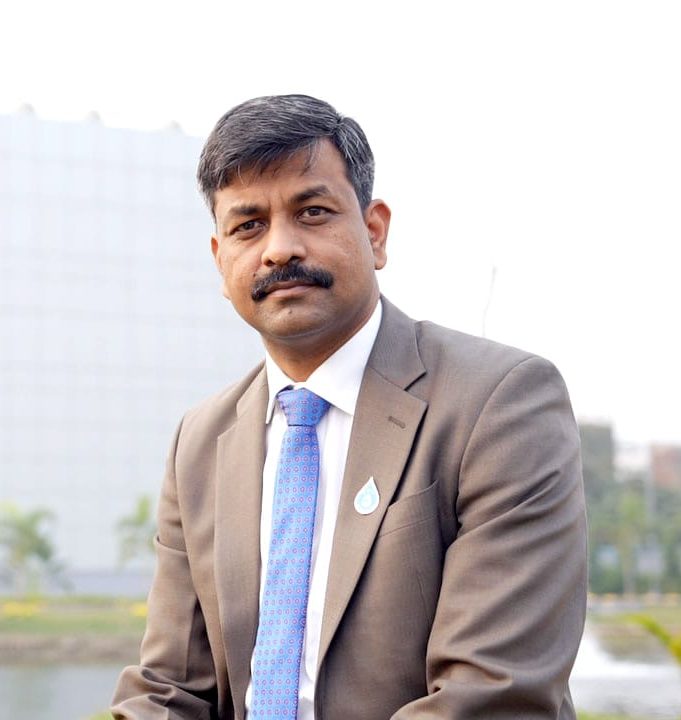 Pradeep Singh, IFS
Pradeep Singh, IFS
Director
Department of Drinking Water and Sanitation (DDWS), Ministry of Jal Shakti
Pradeep Singh is an Indian Forest Service officer of the Gujarat Cadre. He holdsa B.Tech in Mechanical Engineering, and M.Tech in Computer Aided Design and Automation from IIT Bombay. He has an M.S in Forestry from the Forest Research Institute, Dehradun and PG Diploma in Environment Management from Technische Universität Dresden, Germany.
Currently, Pradeep is serving as Director – Jal Jeevan Mission, Department of Drinking water and Sanitation and looks after the use of technology in water service delivery in states/ union territories. He has worked as Deputy Secretary, Climate Change Department, Government of Gujarat and Additional Secretary in Forest and Environment Department, Government of Gujarat. He has also served as Project Director with the Water and Sanitation Management Organisation (WASMO).
Panel 2 – Emerging role of the Private Sector in Capacity Development
This panel discussed the role of the private sector in development, and the panellists, who represented organisations such as KPMG India, Tata Power, and Thinkthrough Consulting, shared their experiences in partnering with the state and a variety of stakeholders in providing critical services.
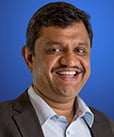 Narayanan Ramaswamy
Narayanan Ramaswamy
Partner and National Lead for Education & Skill Development Sector
KPMG India
Narayan leads the education, skill development and social sector advisory sector for KPMG India. He is the national champion for KPMG Impact – a global movement by KPMG to support clients in building sustainable business and institutions. Narayanan has led multiple consulting engagements across India, SAARC, ASEAN, Middle East and African regions. He has led key engagements for leading multilateral and bilateral agencies like World Bank, FCDO, ADB, GIZ, USAID in their education and skill development programmes.
Narayanan has been in the expert committees of the Ministry of Education and Ministry of Skill Development and Entrepreneurship, like New Education Policy, EQUIP – 5 year vision plan for higher education, and India@2047.
 Vaishnavi Prabhakaran
Vaishnavi Prabhakaran
Head – Sustainability
TATA Power
Vaishnavi started her journey with Tata Power a decade and half back, and has essayed varied roles in business development, strategy, branding and communications and sustainability.
Vaishnavi brings a strong techno-managerial expertise to the field of sustainability. She has led the transformation journey of Tata Power by enabling the Climate Action commitments of Carbon Net Zero before 2045, Water Neutrality and Zero Waste to Landfill by 2030, and no net loss to Biodiversity. She has championed biodiversity conservation causes with marquee projects like Mahseer conservation, Elephant conservation, grassland ecosystem conservation and large-scale indigenous afforestation. She was instrumental in setting up Innovation Councils at Tata Power, and regularly mentors youngsters within the organisation to reach their best potential. As part of the transformation journey, she has been a part of the think-tank for improving diversity and inclusion, is implementing human rights assessment, and developing a common language of sustainability through extensive training interventions. She has been part of the CII Climate Change Council and has contributed to the global power sector roadmap with the World Business Council for Sustainable Development.
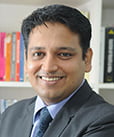 Vijay Ganapathy
Vijay Ganapathy
Co-founder and Partner
Development Sector Advisory
Thinkthrough Consulting
Vijay Ganapathy is an experienced development sector professional with over 21 years of expertise in areas such as education, natural resource management, child rights, livelihoods, and micro-enterprises.
Before establishing TTC in 2015, Vijay served in leadership roles at EY and KPMG, where he pioneered development sector consulting services. His strategic guidance and programme development expertise have assisted corporates, governments, and multilateral and bilateral clients in formulating scalable and sustainable strategies and programmes. Vijay’s extensive experience spans the Middle East and South Asia, collaborating with a diverse range of clients, including multilateral organisations, government entities, corporations, and non-profit organisations. Vijay is presently on the Board of several NGOs working on issues like child rights, education, and environmental sustainability.
Panel 3 – Models and approaches for institutionalising Capacity Development through projects at the State-level
In this panel, the panellists shared their insights from their respective practices in the field. While Dr. Rahul K Sharma described capacity building systems of the government from a human resources management perspective, Anand Lakhan spoke from his experience in building capacity at the community level to negotiate with the government on the matter of rights.
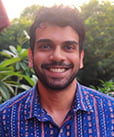 Dr. Rahul Karnamadakala Sharma
Dr. Rahul Karnamadakala Sharma
Fellow – State Capacity Initiative, Centre for Policy Research
Dr. Rahul Karnamadakala Sharma is a Fellow at the State Capacity Initiative at the Centre for Policy Research. His work over the past 12 years has focused on human resources, administrative reform, capacity building, monitoring and evaluation, and data analysis. His sectoral interests are in waste management, distributed energy systems, and sustainable cities. He holds a Masters in Public Policy from the Humphrey School of Public Affairs, University of Minnesota, and a PhD in Public Management and Quantitative Methods from the University of California as a Regent’s Scholar.
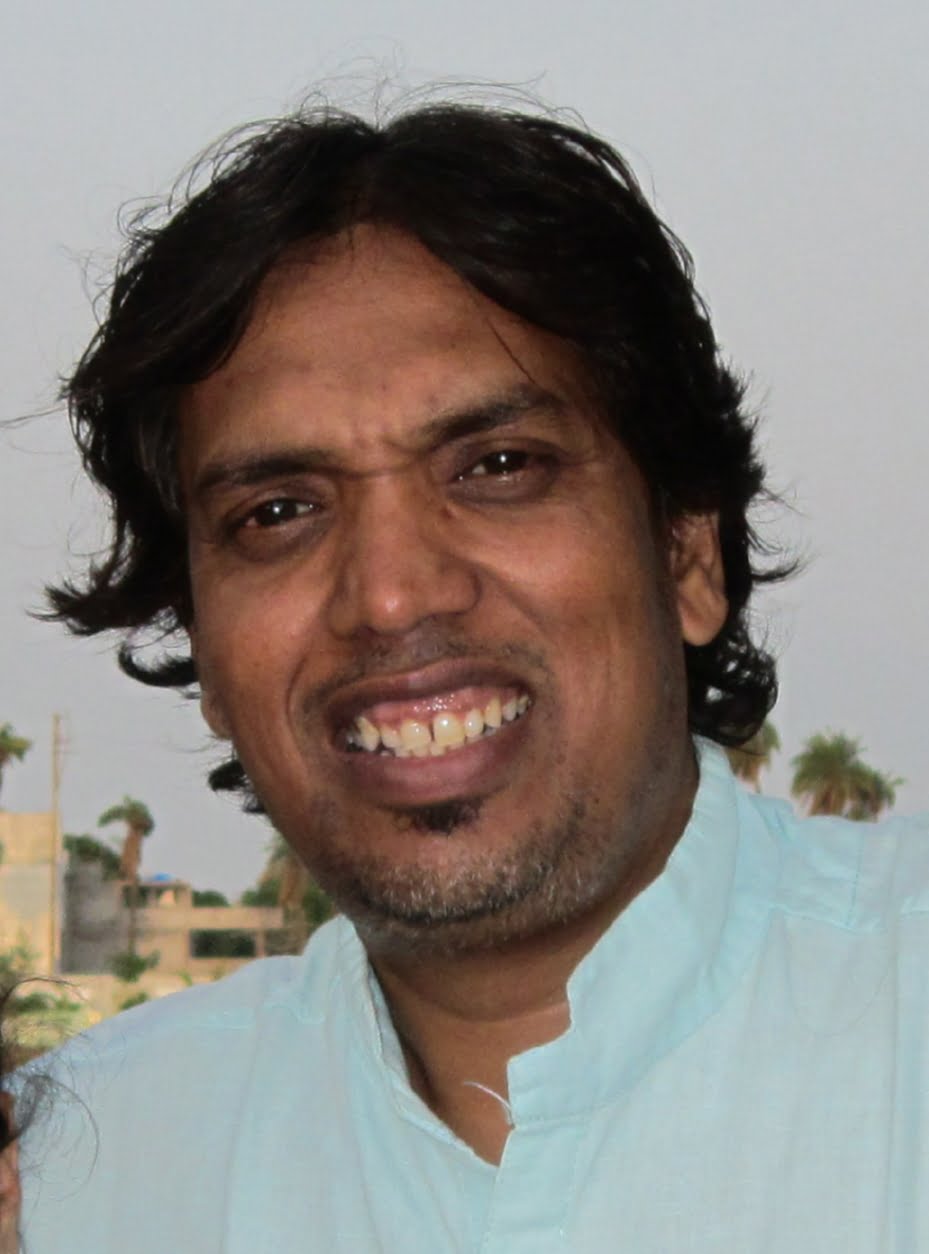 Anand Lakhan
Anand Lakhan
Independent Consultant
Anand has been working on housing rights issues with urban vulnerable communities for 25 years. He is also the convener of the state level slum federation ‘Madhya Pradesh Nav Nirmaan Manch’. Anand has worked as an assistant professor in the Master of Social Work department of Indore Christian college, Indore, and School of Social Science department of Devi Ahilya Vishwavidyalaya . Currently, Anand is engaged with IIHS as an external consultant, along with People’s Science Institute, Dehradun, Indo Global Social Service Society, etc.
Panel 4 – Perspectives from CD Practitioners and researchers on emerging opportunities and challenges
This panel brought together capacity building professionals with varied experiences to share their insights on what measures and interventions worked in strengthening institutional capacity in their respective sectors of practice. The panellists began with a few opening remarks about the scope of their work, ranging from domain specific training and interventions in sectors such as public health engineering and healthcare, to more universally applicable skills such as policy design, programme implementation, leadership development, scenario planning, and HR systems, and what capacity building means for them in each of those areas.
 Kenneth Sim
Kenneth Sim
Dean
Chandler Academy of Governance, Singapore
Kenneth is Dean of the Chandler Academy, which is the training arm of the Chandler Institute of Governance (CIG), a Singapore-headquartered non-profit organisation. In this role, Kenneth sets the strategic direction for the academy and oversees its training activities.
Kenneth is a former Singapore Administrative Service officer, and held key appointments in portfolios such as higher education, workforce skills development and environmental sustainability. He had also served as Special Assistant to the Deputy Prime Minister.
Kenneth graduated from Columbia University, which he attended on a scholarship awarded by the Singapore Public Service Commission.
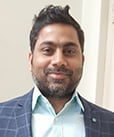 Dr Manoj Kumar Pati
Dr Manoj Kumar Pati
Knowledge Management Specialist
KHPT
Dr Manoj Kumar Pati is a former EV (Emerging Voices for Global Health 2016 cohort), and holds a special interest in global health, health systems research, primary health care, Tuberculosis and Noncommunicable diseases (NCDs). He is currently pursuing a PhD in social sciences from the University of Antwerp, Belgium.
Manoj has years of experience in designing and implementing capacity building programmes for key stakeholders in the public health space, such as the community, community leaders/ platforms, programme implementers, and policymakers. He was instrumental in conceptualising, designing and developing technical training resources for providers and Gram Panchayat members in COVID management under the Grama panchayat Amruta Arogya Abiyaana (GPAAA) programme. He also championed the rolling out of the revised service delivery and protocol implementation for the NCD Care Continuum Programme from the COVID perspective; and played a key role in developing and rolling out perspective building of community health workers in NCD management during the pandemic in urban Mysuru. Commissioned by the National Health Systems Resource Centre (NHSRC), he contributed to the facilitator and participant training modules for the urban local bodies on the vision of healthy cities and health and wellness centres.
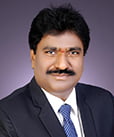 Dr. G Rameshwar Rao
Dr. G Rameshwar Rao
Director
Engineering Staff College of India (ESCI)
G Rameshwar Rao has over 40 years of experience in engineering (water supply and sewerage). He has a doctoral degree from Osmania University. He has worked with the Hyderabad Metropolitan Water Supply & Sewerage Board (HMWSSB) in various positions, including the cadre of Chief General Manager.
During his tenure as Chairman, Telangana State Centre of The Institution of Engineers (IEI), it was named the ;Best State Centre’ for the best all-round performance for 2018-2019 and 2019-2020 successively. Earlier in 2016, he was chosen as the first Hon. Secretary of the new Telangana State Centre after bifurcation.
International Dialogue: Role of Capacity Development in strengthening Public Institutions in India
This session was a dialogue between Aromar Revi and Dr. Devesh Kapur based on some of the topics covered in the latter’s book, ‘Rethinking Public Institutions in India’, (Devesh Kapur, Pratap Bhanu Mehta, and Milan Vaishnav (eds), Rethinking Public Institutions in India (Delhi, 2017; online edn, Oxford Academic, 18 May 2017)) that deals with state capacity for service delivery in India.
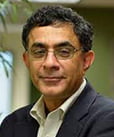 Devesh Kapur
Devesh Kapur
Director Asia Programs; and Starr Foundation Professor of South Asia Studies
Johns Hopkins University – Paul H. Nitze School of Advanced International Studies (SAIS)
Director Asia Programs; and Starr Foundation Professor of South Asia Studies Johns Hopkins University – Paul H. Nitze School of Advanced International Studies (SAIS) Devesh Kapur is the Starr Foundation Professor of South Asian Studies and Director of Asia Programs at the Johns Hopkins University School of Advanced International Studies (SAIS). Prior to joining Johns Hopkins University, he was professor of Political Science; and Director of the Center for the Advanced Study of India at the University of Pennsylvania, holding the Madan Lal Sobti Chair for the Study of Contemporary India. He has also held the positions of Associate Professor of Government at the University of Texas at Austin, and the Frederick Danziger Associate Professor of Government at Harvard. Devesh received the Joseph R Levenson Teaching Prize, given to the best junior faculty at Harvard College, and was awarded for outstanding teaching in political science by the American Political Science Association in 2005.
Round Table 1 – State-level training institutions on the enabling environment for capacity development
Round table 1 summarised the important points that were discussed on day 1 around the issues of motivation for capacity building, enabling environments, institutional structures, and processes to support it, empowerment of the community and their role as partners in service delivery, and demand for accountability in service delivery that feeds back into motivation and performance improvement. This round table, constituted of representatives from various state level training institutes as a community of practice, reflected upon the key learnings from panel 3 and discussed how State Training Institutes can contribute to building sector specific enabling environments through their work.
Round Table 2 – Community of practice: Capacity development practitioners on enabling environment
Constituted of capacity development practitioners from other training entities, administrative training institutes and academic institutions, round table 2 discussed the means and methods of developing a community of practice. Practitioners felt the need to develop a community of practice that would enable them in their work and build their capacity in all the verticals of capacity development. The establishment of an advisory committee can play a crucial role in providing guidelines to the practitioners and could pave the way for setting standards.
Practitioners spoke about the challenges that they face in terms of capacity development, ranging from there not being enough literature in this sector, the lack of incentives for participants to attend training programmes, establishing communities of practice for various thematic areas especially on the digital front, tackling sector agnostic approaches, policy and legal framework inadequacies, inadequacies in public engagements, and the lack in leadership, funding, and the like.
Workshop – Framing teaching cases
This half-day workshop was a closed event for registered participants. The workshop sessions were conducted by IIHS Faculty, Vineetha Nalla, Gargi Sen and Nihal Ranjit, based on their research work on the Odisha State Disaster Management Authority (OSDMA) who took the learners through a systematic process for framing teaching cases from research projects.
After establishing the need and benefits of teaching with cases, the sessions navigated through the critical steps of conceptualising and structuring a teaching case. This included: developing the case summary and the main case write-up, identifying appropriate supplementary readings as a part of the case archives, and developing the teaching note, including the pedagogical possibilities that render the case accessible to any instructor apart from the author of the case.



